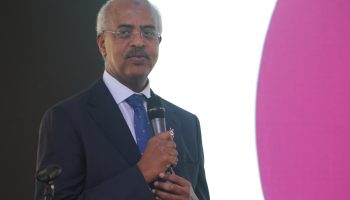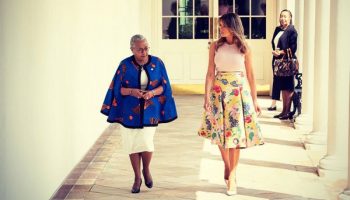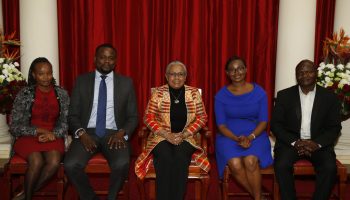- March 16, 2020
- Posted by: p mulee
- Category:
By Reporter
Life Sunday began shutting down literally in Kenya as the government moved in to tame the spread of coronavirus following the confirmation of two more cases.
This now means Kenya has three cases of the highly contagious disease that is threatening to bring the world economy to its knees. The first case was reported on Friday from a 27-year-old patient who had travelled into the country from the US via London.
Informing the country of the new cases, President Uhuru Kenyatta said the two tested positive as a result of coming into contact with the first patient.
“This pandemic will test us, as it is testing all countries in every corner of the world, but I do not believe it will defeat us,” the head of state said as he announced radical measures to curb the spread, including immediate closure of all learning institutions.
“If we pull together, and everybody does their part, we shall overcome its worst impacts.”
According to the government, at least 27 persons have come into contact with the first patient who landed into the country on March 5.
“Our health officials have already moved them (new patients) into Kenyatta National Hospital isolation facility,” Uhuru announced during a press conference at Harambe House.
“The medical teams are closely monitoring the patients, who are in stable condition and responding well to treatment. This gives us hope.”
In a radical move, Uhuru announced a raft of measures to tame the spread of the virus.
Primary and secondary day schools are to suspend operations from today. For those who board, their school administrations are to ensure they are home by Wednesday.
Universities and tertiary institutions are to be closed latest Friday. In what may pose logistical nightmares for firms and government institutions, the President said where possible, government offices, businesses and companies are encouraged to allow employees to work from home with the exception of employees providing critical or essential services.
TRAVEL
The government also suspended travel for all persons coming into Kenya from any country with reported coronavirus cases. This means the country will have no contact with the world’s biggest economies that have become the epicentre of the virus.
Only Kenyan citizens and foreigners with valid residence permits will be allowed into the country. However, they have to proceed on self-quarantine or to a government-designated quarantine facility. The directive will take effect within the next 48 hours to cater for any passenger who may be en route, Uhuru said.
“This directive will remain in effect for the next 30 days or as varied by the National Emergency Response Committee,” he added.
Coronavirus, scientifically known as Covid-19, has hit about 120 countries, with global superpowers among the worst-hit. They include the US, China, France and Germany. Uhuru said all persons who have come into Kenya in the last 14 days must self-quarantine.
“If any person exhibits symptoms such as cough, or fever, they should present themselves to the nearest health facility for testing,” he directed.
And to avoid the risk of transmission through physical handling of money, Uhuru encouraged Kenyans to adopt cashless transactions using mobile money transfer services or credit cards.
“We appeal to mobile operators and banks to take into consideration the situation, and reduce the cost of transactions during this period,” he requested.
The President asked Kenyans to avoid congregating at different locations such as places of worship and minimise attendance to social gatherings such as weddings and funerals.
“Avoid crowded places, including shopping malls and entertainment premises, and minimise congestion in public transport wherever possible,” he urged.
“Hospitals and shopping malls are encouraged to provide soap, water and hand sanitisers and ensure all their premises are regularly cleaned and disinfected.”
He also asked for limitation of visitors to hospitalised patients in both public and private hospitals.
“Some of the measures may cause inconvenience, but I want to assure you they are designed to ensure we effectively contain the spread of the virus.”

















My spouse and I stumbled over here from a different website and thought I should check things out.
I like what I see so i am just following you. Look forward to
finding out about your web page for a second time.
Because the admin of this site is working, no hesitation very rapidly it
will be famous, due to its feature contents.
I was extremely pleased to uncover this web site.
I want to to thank you for ones time for this wonderful read!!
I definitely loved every little bit of it and I have you saved as a
favorite to see new things on your website. adreamoftrains content hosting
Your means of telling the whole thing in this paragraph is in fact nice, every one can without difficulty understand it,
Thanks a lot. cheap flights 2CSYEon
Every weekend i used to pay a quick visit this website, as
i wish for enjoyment, as this this web site conations actually nice funny
stuff too. 2CSYEon cheap flights
Greetings! I know this is kind of off topic
but I was wondering if you knew where I could find
a captcha plugin for my comment form? I’m using the same blog platform as yours and I’m
having difficulty finding one? Thanks a lot!
If you wish for to take much from this post then you have to
apply such strategies to your won blog.